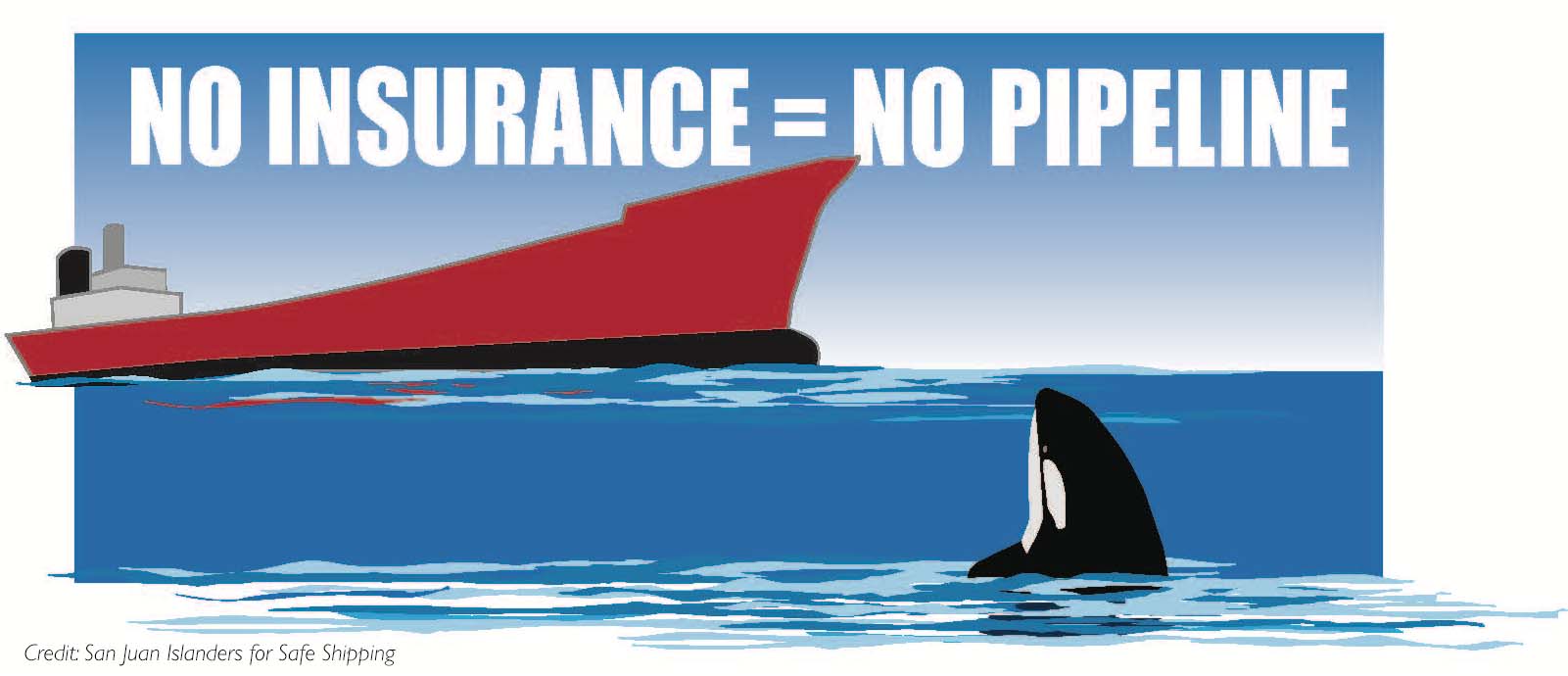Tell Insurance Companies to Stop Providing Coverage for the Trans Mountain Pipeline

We can stop the Trans Mountain Pipeline expansion project and an additional 696 annual oil tanker transits through the Southern Residents’ critical habitat if we can convince insurance companies to stop providing coverage.
Canadian Law requires the Trans Mountain pipeline to have insurance coverage. Public pressure has led to three insurance companies cancelling their coverage of the pipeline. Trans Mountain is shopping for their next insurance policy. Now is the time to pressure insurers to not renew or sign new policies.
Please send a letter to the CEOs of Liberty Mutual, Chubb, AIG, Lloyd’s, and WR Berkley and call on them to publicly commit to not renewing or issuing any new insurance policies for Trans Mountain, and adopt policies that prohibit insurance for all tar sands extraction and transport projects and companies and that respect Indigenous rights.
The Trans Mountain pipeline goes from Alberta, Canada, to Burnaby, B.C. where oil tankers are loaded with diluted bitumen for transport through the Salish Sea and the Southern Resident killer whales’ critical habitat. The pipeline expansion project is proceeding without the free, prior, and informed consent of all the First Nations and Tribes whose unceded territories and Tribal Treaty Rights are impacted by the pipeline and the oil tanker traffic. The Trans Mountain Pipeline expansion project is a global climate catastrophe, violates Indigenous rights, and harms the entire Salish Sea marine ecosystem.
The Trans Mountain Pipeline expansion’s tanker traffic would ship an additional 590,000 barrels per day of highly toxic tar sands oil through the Salish Sea. The additional 696 annual oil tanker transits will significantly increase accident and oil spill risk, imperiling our environment and our economy. The noise and disruption from the oil tankers impact the critically endangered Southern Resident killer whales’ ability to find scarce food. The increased oil tanker traffic will also increase the risk of fatal ship strikes.
Tar sands oil ranks among the most carbon-intensive oils on the planet. Compared with other crude oils, tar sands oil takes more energy to extract and refine, and therefore its production is more greenhouse gas intensive.
You can help stop this dangerous project by contacting insurance company CEOs today. Thank you for taking action to protect the Salish Sea ecosystem and support Southern Resident killer whale recovery! Thank you for taking action in support of the First Nations and Tribes!
